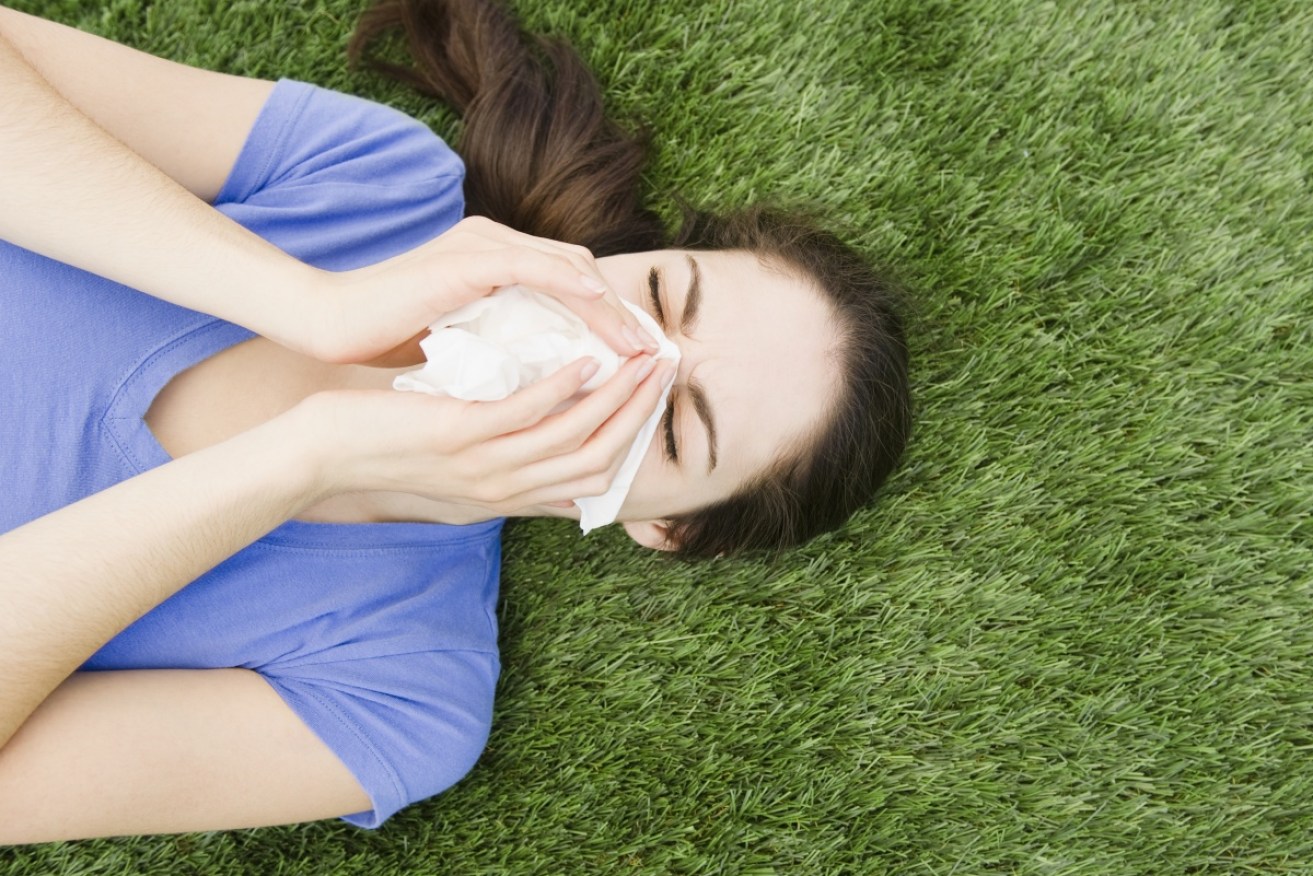Happier days ahead for hay fever sufferers


Pollen from grasses is one of the most common causes of hay fever. Photo: Getty
Hay fever sufferers can expect a slower start to sneezing season this month, with analysts predicting lower than normal grass pollen counts in spring and summer.
Grass pollen is the most common trigger for hay fever, or allergic rhinitis, when outdoors. In Australia, the season typically runs from October to March.
Experts say the dry winter has led to lower grass pollen levels this year.
Professor Janet Davies, head of the national pollen monitoring program AusPollen, said grass pollen season was determined by the distribution of grasses, as well as rainfall and temperature.
“Given low winter rainfalls across much of eastern Australia, it looks like the magnitude of the grass pollen season will be towards the low end of the spectrum,” she said.
Climate is the main factor that affects grass pollen trends, Professor Davies said.
“The temperate grasses flower in spring and are driven to flower by increasing temperature and day length,” she said. “Whereas subtropical grasses flower following rainfall, and often peak in summer and autumn.”
Temperate grasses are found in southern parts of Australia, such as Tasmania and Victoria. Subtropical grasses tend to flourish in Queensland, while the other states have both varieties.

Grass pollen count is predicted to remain low this season. Photo: AusPollen
The lighter pollen trend is good news for the 4.5 million Australians who experience hay fever. But experts say it’s still important to remain vigilant.
“Take hayfever seriously because it affects your health, risk of asthma and performance at work and school,” Professor Davies said.
Dr Kwok Yan, a specialist in allergy, respiratory and sleep medicine at Sydney’s Royal Prince Alfred Hospital said hay fever was a “debilitating medical condition” and should never be trivialised.
“Symptoms can have a significant impact on sleep, concentration, learning and daily function,” he said.
A recent galaxy poll found that one third of people with moderate to severe hay fever wake up because of breathing problems and congestion.
Allergy and asthma sufferers are also urged to have an action plan, and to be prepared for anything, including thunderstorm asthma.
In Victoria, 10 people died in November 2016 after the world’s worst outbreak of thunderstorm asthma. The severity of that storm, and the reactions to it, caught many Victorians, including emergency responders, off guard.
Asthma Australia chief executive Michele Goldman said anyone with symptoms, not only those with asthma, should talk to their GP about medications and when to call for emergency help.
“Forty per cent of those affected … had never had asthma, so many of those people didn’t recognise the symptoms and they did not know asthma first-aid steps,” she has previously told The New Daily.
Professor Davies said anyone experiencing wheezing, cough or a tight chest should see their GP, because it could be a sign of asthma in response to grass pollen exposure.
Antihistamine tablets, syrups and sprays can help reduce symptoms such as sneezing, and irritated or itchy eyes.

Pollen count apps are helping people plan ahead. Photo: Uni Melb
Medicines, known as decongestant sprays, can also unblock and dry the nose. But the Australian Society for Clinical Immunology and Allergy recommends restricting use to a couple of days because it can create more problems in the nose in the longer term.
Natural remedies such as salt water nasal sprays could also help ease symptoms, the society said.
People with symptoms should also avoid going outside and keep car and home windows closed on high pollen days. Reduce dust and allergens inside by changing your clothes when you get home, washing bedsheets regularly, and wiping down dusty surfaces with a wet cloth.
Pollen data apps are also an essential download for anyone with symptoms.
AusPollen apps (available from pollenforecast.com.au) were based on actual pollen data rather than a forecast, Professor Davies said.








